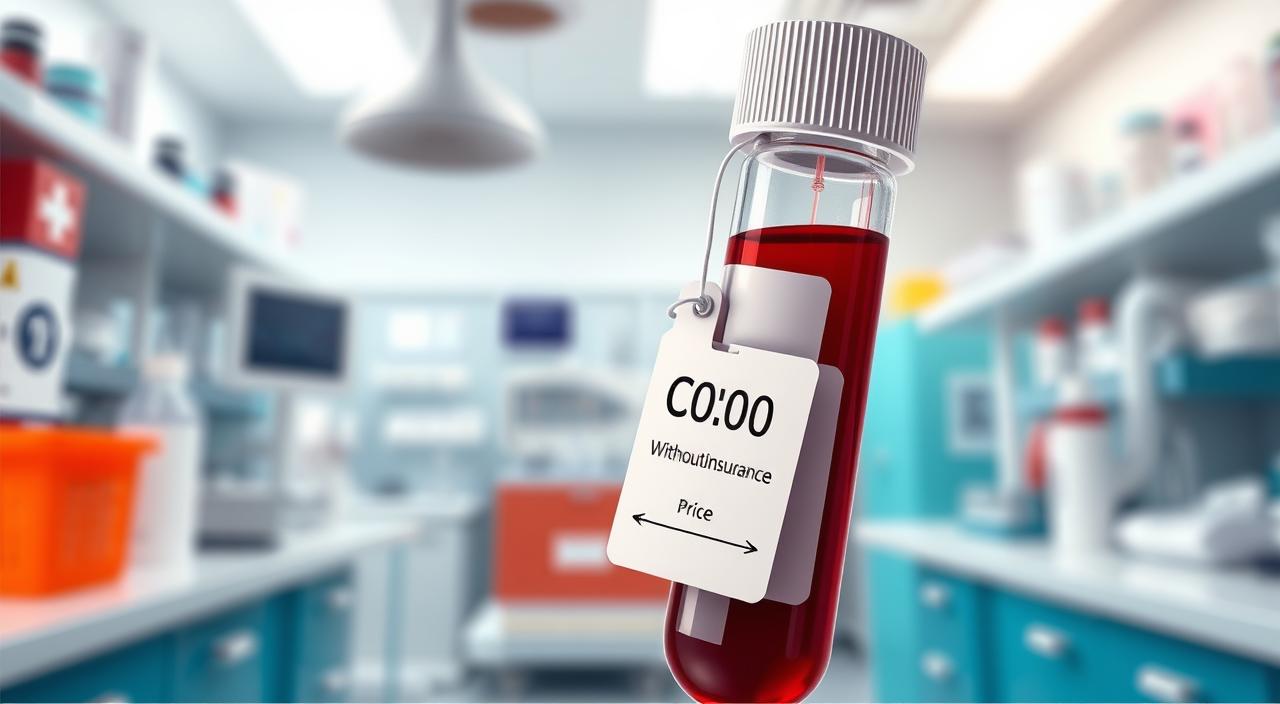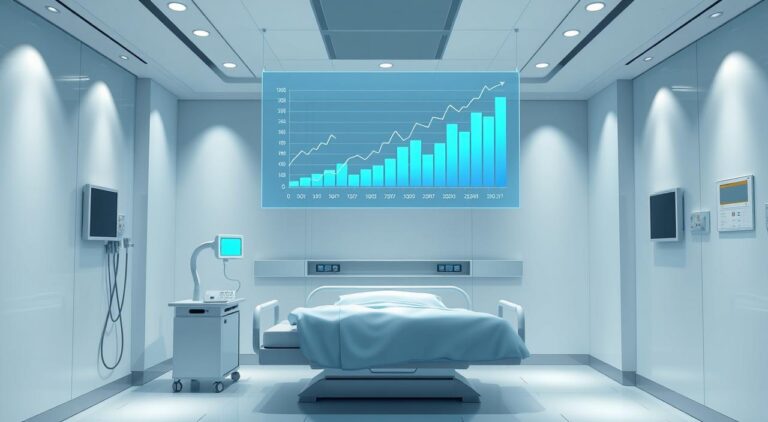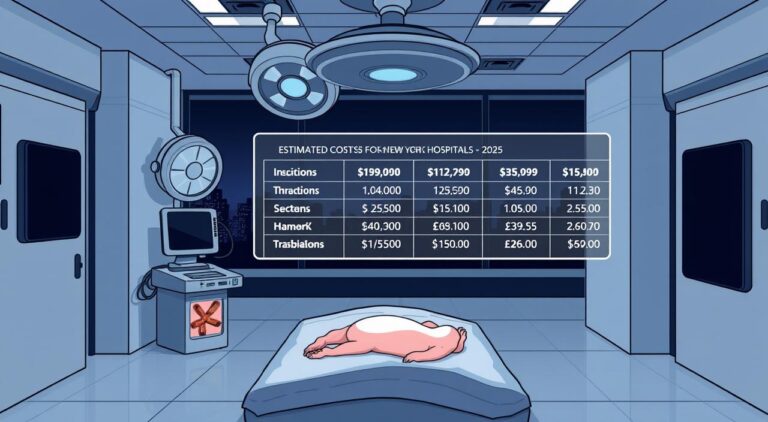How much does a blood test cost without insurance USA
Facing medical bills without coverage can feel overwhelming. For diagnostic services like lab work, prices for uninsured individuals in the United States typically start around $25 to $125 per individual analysis or panel. This range serves as a baseline, but the final amount depends heavily on the specific procedures your doctor orders.
Some basic panels are quite affordable, while specialized or comprehensive screenings can exceed $1,000. Since you bear the full financial responsibility, understanding potential expenses upfront is crucial for managing your budget. When multiple analyses are needed, the total can quickly climb into the thousands.
This guide, based on 2025 data from various U.S. healthcare sources, empowers you with current information. Lab work is a common diagnostic tool, making this knowledge essential. You will discover specific price breakdowns, affordable alternatives, and smart strategies to reduce your expenses.
Gaining this comprehensive understanding helps alleviate the stress of unexpected medical bills. Continue reading to learn how to make informed, cost-effective decisions about your healthcare needs.
Key Takeaways
- Prices for lab work without a health plan generally start between $25 and $125 per test.
- The final expense varies significantly based on the type and complexity of the analysis.
- Uninsured patients are responsible for the full amount, making price awareness vital.
- Ordering several tests together can lead to cumulative costs reaching thousands of dollars.
- This information is based on 2025 data from U.S. medical facilities and labs.
- Knowing these costs helps you budget and ask your provider the right questions.
Introduction
Diagnostic blood analysis serves as a window into your overall physiological condition. Healthcare providers rely on this essential blood work to assess your general health status and monitor chronic conditions. This laboratory testing can detect potential medical issues before they develop into serious complications.
These blood tests measure various substances circulating in your bloodstream. They examine red and white blood cells, cholesterol levels, glucose concentrations, and organ function markers. The results reveal vital indicators about how your body is functioning.
Blood work ranks among the most common types of laboratory procedures performed nationwide. Millions of Americans undergo these tests annually for preventive care, diagnosis, and treatment monitoring. Understanding the financial aspect becomes crucial when paying out-of-pocket.
The results from this blood analysis help medical professionals diagnose numerous conditions. These include diabetes, heart disease, thyroid disorders, infections, and various organ problems. The objective data guides treatment decisions and lifestyle recommendations.
This guide empowers you to navigate the complex landscape of blood work pricing. You’ll learn to make informed decisions about when and where to get essential diagnostic care. Knowledge transforms you into an informed healthcare consumer.
How much does a blood test cost without insurance USA
When you’re responsible for full payment, laboratory work pricing becomes a critical consideration. Standard diagnostic procedures show significant price differences across providers.
Average Cost Overview
Common blood work typically ranges from $25 to $125 per analysis. A Complete Blood Count (CBC) falls between $25-$125, while a Basic Metabolic Panel (BMP) costs $25-$80.
Comprehensive panels like the CMP run $40-$50, and lipid cholesterol screening averages $45-$100. Specialty analyses have higher price points.
Thyroid testing costs $40-$75, and testosterone screening ranges from $69-$130. More complex allergy work can reach $200-$1,000 depending on scope.
Price Variations Explained
The same CBC might cost $51 at one facility but $622 elsewhere. This dramatic difference stems from facility type and location factors.
Hospitals often charge significantly more than independent labs. A metabolic panel costing $179 at a hospital might be only $15 for insured patients.
Ordering multiple analyses together as a panel provides substantial savings compared to individual tests. Always confirm pricing before proceeding with any laboratory work.
Factors Influencing Blood Test Costs
Multiple variables converge to determine the ultimate expense you’ll face for essential diagnostic procedures. Understanding these factors empowers you to make smarter financial decisions about your healthcare.
Insurance Coverage and Out-of-Pocket Expenses
Your insurance status dramatically affects pricing. Insured patients typically pay only copays ranging from $10-$30. Those without coverage face the full undiscounted price.
Preventive blood work is often fully covered under the Affordable Care Act. Diagnostic tests ordered for specific symptoms may involve deductibles and higher pocket costs.
Testing Facility and Location
The choice of facility significantly impacts your bill. Hospital-based laboratories charge 2-3 times more than independent lab locations due to higher overhead.
Geographic location also plays a crucial role. Urban areas and states with higher living expenses generally charge more for the same blood tests than rural regions.
Number and Type of Tests Ordered
The complexity and quantity of tests directly correlate to total costs. Basic analyses like CBC cost $25-$125, while specialized testing can reach $700+ per individual procedure.
Your healthcare provider may order comprehensive panel bundles. Understanding which specific analyses are included helps assess whether the bundled price offers good value.
Affordable Options for Blood Work
Smart patients explore multiple pathways to access essential diagnostic services. You have several cost-effective choices when you need to get blood work completed.
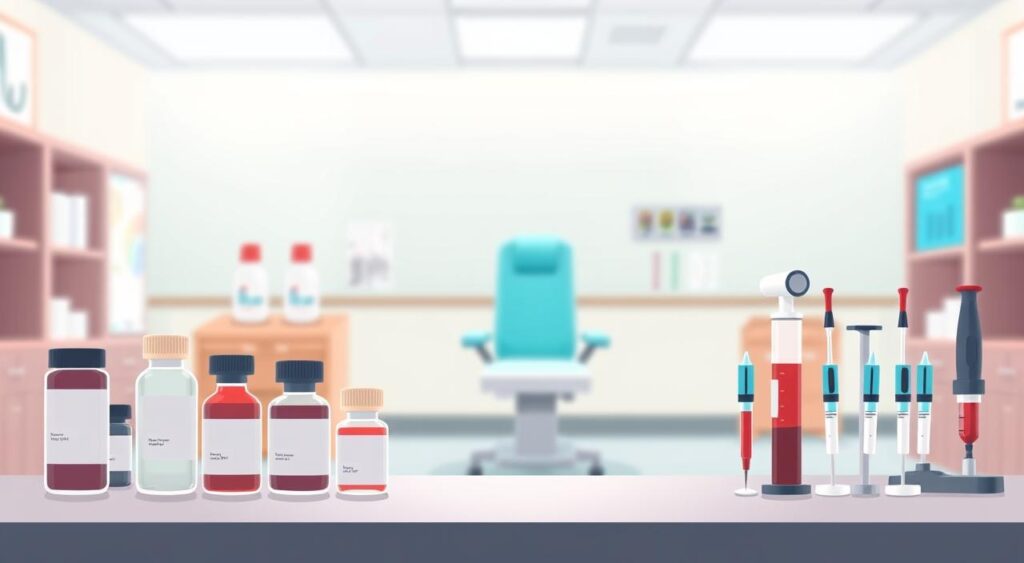
At-Home Lab Testing
Home collection kits represent a modern solution for blood work. Companies mail everything you need directly to your door. You collect a small sample and return it for analysis.
This approach often costs 30-50% less than traditional facility visits. Comprehensive panels typically range from $99 to $199. You avoid office visit fees entirely.
Community Clinics and Independent Labs
Local health clinics provide sliding-scale pricing based on income. Many offer blood work done at minimal or no charge. These community resources are invaluable for budget-conscious individuals.
Independent lab facilities like Quest Diagnostics and LabCorp offer transparent pricing. Their direct-to-consumer rates are typically lower than hospital-based testing. Always ask about cash-pay discounts.
Compare prices from at least three providers before scheduling your tests. Prices for identical analyses can vary dramatically. Your primary care office might have negotiated better rates with specific laboratories.
Exploring these alternatives puts you in control of your healthcare expenses.
Public health departments often provide free screening for specific conditions. Urgent care centers offer another middle-ground option. With research, you can get blood analysis without breaking your budget.
Understanding Blood Test Panels and Their Costs
Understanding the components of common blood work bundles helps you maximize value for your diagnostic dollar. Each panel serves specific screening purposes with distinct price points.
Complete Blood Count (CBC) Costs
The complete blood count provides foundational health insights for $25-$125. This essential test measures red and white cell levels, platelets, and hemoglobin.
Abnormal results can indicate anemia, infection, or blood disorders. The comprehensive blood count offers exceptional screening value at this price range.
Comprehensive Metabolic Panel (CMP) Costs
For $40-$50, the comprehensive metabolic panel delivers extensive organ function data. This expanded metabolic panel assesses liver enzymes, kidney function, and electrolyte balance.
It bundles 14 individual tests into one cost-effective package. The CMP provides broader health insights than basic metabolic screenings.
Combining CBC and CMP panels creates a powerful health assessment tool. These complementary blood analyses work together to paint a complete wellness picture.
Navigating Additional Blood Work Expenses
Many patients receive an unpleasant surprise when their final bill arrives with charges they never anticipated. The laboratory analysis price represents only part of your total financial responsibility.
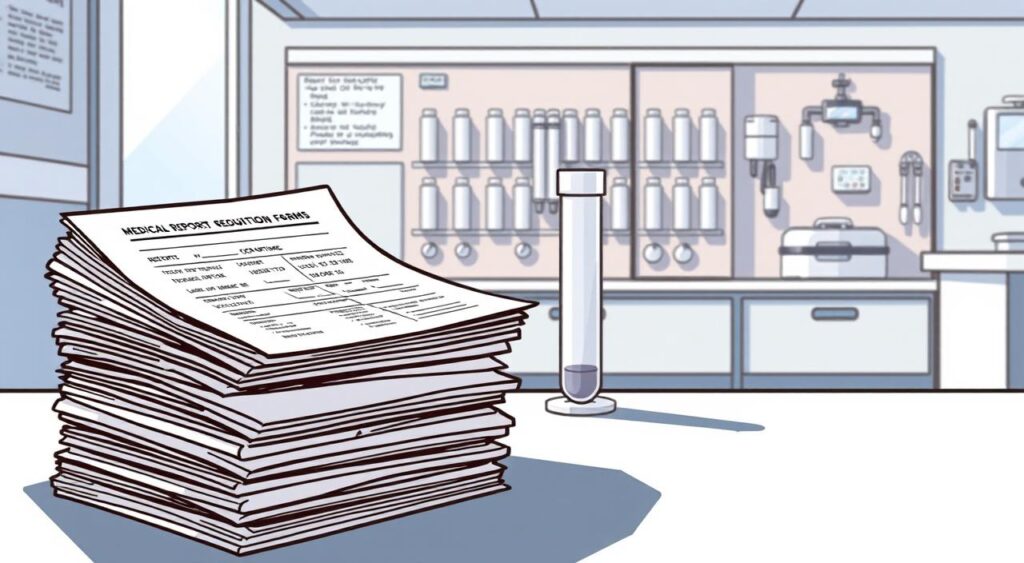
Additional fees can add $50-$200 or more to your final amount. These hidden costs often include office visits, blood draw procedures, and administrative charges.
Doctor’s Office Visit and Service Fees
Your healthcare provider typically charges separately for the office consultation. This fee ranges from $100-$300 for uninsured patients.
A $50 analysis can become a $150-$350 bill when including the office visit. Some providers offer “blood draw only” appointments to avoid consultation fees.
Administrative and Processing Charges
Facility fees at hospital and urgent care centers add $50-$150 to your bill. Venipuncture charges cover the phlebotomist’s time and supplies.
Laboratory processing fees range from $5-$40 per specimen. These cover sample logging, transportation, and quality control procedures.
Always request an itemized cost estimate before scheduling your blood work. Confirm whether prices include all charges or just the laboratory analysis.
Key Considerations for Blood Work Without Insurance
Empowered patients know that proactive communication with their medical team can significantly reduce diagnostic expenses. Asking strategic questions before scheduling any laboratory analysis puts you in control of both your health and your budget.
Essential Questions for Your Healthcare Provider
Start by asking your healthcare provider why specific tests are medically necessary. Understanding how results will influence treatment decisions helps evaluate whether the expense is justified.
Inquire about preparation requirements and result timelines. Some blood work requires fasting, while most testing provides results within 24-72 hours. Knowing follow-up steps for abnormal findings helps budget for potential additional care.
Tips for Saving on Blood Test Expenses
Compare prices across multiple facilities before scheduling. Online research can reveal significant differences for identical blood tests. Consider at-home collection kits that often cost 30-50% less than clinic visits.
Ask your primary provider to order blood work through their preferred laboratory. Explore community health centers and free clinics that offer sliding-scale pricing. Always inquire about cash-pay discounts and payment plans.
Strategic questioning and comparison shopping transform you from a passive patient into an informed healthcare consumer.
Remember that proper preparation prevents costly retesting. Understanding different types of analyses and their frequency requirements helps space out non-urgent monitoring. This approach maximizes value while minimizing annual healthcare spending.
Conclusion
Taking charge of your diagnostic health expenses requires strategic planning and informed decision-making. Basic blood work typically ranges from $25 to $125, while comprehensive testing can reach over $1,000. Your final bill depends on facility choice, geographic location, and additional service fees.
Significant savings of 40-80% are achievable through smart strategies. Compare prices across multiple providers and explore independent laboratories. Ask about cash-pay discounts and consider at-home collection kits for certain tests.
Always consult your healthcare provider to determine which analyses are medically necessary for your situation. This prevents unnecessary spending while ensuring you receive essential diagnostic care. The results from appropriate blood tests provide crucial insights into your health levels.
Being an informed consumer puts you in control. You can access quality diagnostic services while managing your budget effectively. Your healthcare journey becomes more affordable and less stressful when you understand your options.
